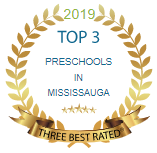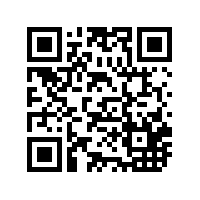1 ) Toddler Programme - 18 months to 2.5 years
Our Mississauga Montessori School’s Toddler program is comprehensive, challenging and diverse. This is a time when the child absorbs effortlessly from his/her surroundings, just by living. This is the period of the 'absorbent mind.' They need to be able to explore and discover. These children are curious about everything and need to touch and manipulate objects in order to learn. They are attracted to everything that stimulates their senses, which they are learning about through their surroundings. Our Daycare in Mississauga offers an introduction to the Montessori Philosophy and Methodology for children from 18 months to 2.5 years of age.
Practical Life:
The Practical Life area is the building block for the future development in all areas of the Montessori environment. For the toddler children, the practical life materials offer an opportunity to begin developing their fine and gross motor skills, focusing on abilities, attention span and concentration levels, through working with some of the materials such as pouring from jug to jug, spooning, and locks and keys.
Sensorial:
The sensorial materials allow a child to begin to 'define their world.' Children are introduced to shapes, sizes, colours, basic geometric shapes and sounds, allowing them to begin classifying the world around them.
Language and Math:
Toddler children are introduced to the preliminary language exercises allowing them to learn the sounds that make up words. Sounds are introduced phonetically as children play sound games allowing them to listen carefully to the sounds that make up the words we use. In the Toddler Math area, simple concepts of numbers are introduced through songs, counting by rote and the daily calendar.
Culture and Science:
In the cultural area, the children are introduced to basic concepts about animals, botany and geography. Through working with such materials as puzzles, leaf pressings and talking about animals from around the world. In the science area, we introduce basic concepts through experiments such as, cutting an orange to discover where the juice comes from, or freezing water to ice-cubes. These types of simple concepts set the stage for further interest and more advanced exploration in the Casa and Elementary age groups.
Free Play:
Free play takes place indoors and outdoors. This provides children with an opportunity to share and develop relationships. During free play, there is an opportunity for children to explore, design, create and carry out projects.
Music and Movement:
Music and movement encourages self-expression, creativity, and fun for children. It develops an awareness and appreciation of sounds, tones, and rhythm.
Circle Time and Story Telling:
Circle time and Story Telling enhances the child's ability to listen through stories, songs, and poems, and encourages children to broaden their imagination. Furthermore, this develops memory skills, lengthens attention span, encourages social skills, while promoting cognitive development. This in turn leads children to self-expression, gross motor development, role- playing, body awareness and language development.
Book Area:
The book area is a quiet area for children to relax, enjoy, and explore different books which stimulates the child's desire to learn to read. Activities around books can be done in large or small groups. This enhances development of the child's attention span, while learning simple concepts and exercising their imagination.
Creative Learning:
Creative experiences provide children with the opportunity to express themselves, manipulate and create crafts with a variety of materials. Emphasis is placed on Process Not Product. Creative learning allows children to work alone or in groups. Creative learning assists in many areas of your child's development such as, pre-writing experiences, small muscle co-ordination, eye-hand coordination, fine motor skills and sensorial experience.
Large Motor Skills:
Large motor skill activities include daily indoor and outdoor play which promotes good health and development for growth. These activities also aide in balance and coordination, while promoting social skills such as sharing, taking turns and co-operation.
Manipulative Play:
Manipulative play helps to develop control, self-expression and role-playing. It also gives children an opportunity for social interaction that encourages language development. These activities are done individually and in a group setting. They help to develop dramatic role-playing, social interaction, turn taking, self expression and language development. It incorporates conceptual skills and contributes to small muscle dexterity and cognitive processes.
Dramatic Play Centre:
This area includes a grocery stand with cash register, house keeping, multi ethnic dolls and block play. It provides an opportunity for children to learn about their feelings and to experiment with social relations as well. It also helps develop language through self-expression and role-playing.
2 ) Casa Programme - 2.5 to 6 years
Our Casa programme at Westbrook Montessori Academy is based on the Montessori philosophy that strives to provide each child with an environment in which they learn, and also develop essential work ethics. This in turn, will lead the students to success and prepare them for their future school years. It is recommended that parents compare the difference between the public system’s Full Day Kindergarten programme compared to our education based Casa programme.
The Casa classroom has five areas of concentration: Practical Life, Sensorial, Language, Mathematics and Culture.
The children explore various areas of study, absorb independent learning, and develop self-esteem and leadership with age appropriate Practical Life activities.
Practical Life Exercises:
These activities provide the children with the opportunity to manipulate items that are found within their own home. They are able to care for themselves as well as acquire a sensitivity and sense of respect for their external environment. This in turn provides them with independence, focus and promotes a healthy self-esteem.
The Sensorial Exercises:
Help children explore their senses and put things into perspective. They are led to study concepts, such as colours and shapes through Montessori Specific materials.
The Language Programme:
In the Montessori classroom we teach initial sounds of words, middle sounds of words and ending sounds of words. For example "I spy" games which ask the child to find the object that starts with the sound "b" (or end with the sound "t") help the child to isolate and identify specific sounds within a word.
Further exercises of the Language curriculum provide basic knowledge and lay the groundwork for Language development. Special exercises with the Montessori materials teach the child his/her alphabet, how to recognize the letters by sight and sound and prepares him/her for later reading and writing. These activities show the child that a word is nothing more than an accumulation of sounds.
The Mathematics Programme:
Mathematics consists of symbol and quantity identification for the categories of units, tens, hundreds, and thousands. The children are exposed to all categories in preparation of operation performance. The operations the students are introduced to are: addition, subtraction, multiplication and division.
By working with Practical Life exercises and sensorial materials, the child has been indirectly preparing himself for math. Practical Life materials are laid out in a specific and orderly way. The child often follows a set procedure as he/she does each activity. He/she learns to be exact and precise as he/she works. The exercises of Practical Life have given the children the opportunity to develop logical and sequential thought patterns.
Cultural Activities:
Culture is an enriched area of the environment. It consists of zoology, botany, science, geography and art. The children explore the parts of animals, maps, computers and plants as well as composers and artists. This builds self-awareness and introduction to the community and environment around them.
French:
In recognizing the demand and challenges of the future, Westbrook Montessori Academy introduces French language skills to enhance the child's receptive and expressive communication skills.
Music and Movement:
Music and movement encourages self-expression, creativity, and fun for children. It develops an awareness and appreciation of sounds, tones, and rhythm.
Our teachers are trained to understand child development and to use that understanding in planning appropriate activities to stimulate your child's development. Our goal is to ensure that every child in our care receives age appropriate opportunities to develop physically, mentally, socially, and emotionally. Your child's teacher will be planning activities to aid the development of your child in each of these areas, therefore offering your child the opportunity:
- To feel and be secure in an atmosphere especially created to help a child develop his/her full potential.
- To play and learn with other children who are at the same developmental level.
- To experience activities which are at times streamlined to provide guidance and to allow for free individual expression.
- To develop positive self-image through appropriate and challenging experiences specifically geared toward success.
- To learn to share, wait their turn and develop friendships.
- To acquire self discipline and good work habits for further school years.
- To encourage independence, and create the opportunity for each child to develop skills according to their respective maturity level.




